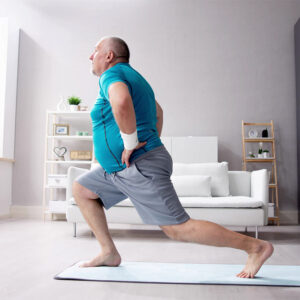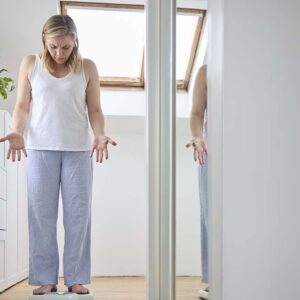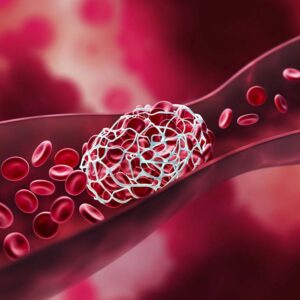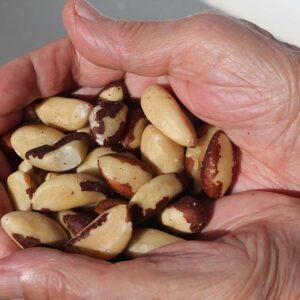
Red Wine -- Is It Healthy or Not?
“… good company, good wine, good welcome, can make good people.”
— William Shakespeare, Henry VIII
The idea that wine, especially red wine, is healthful has a long, noble history.
But what does the science say?
I’m always wary of the natural human tendency to cherry-pick data to confirm a hypothesis that we hope is true.
While there has long been an association between moderate red wine consumption and better health — especially heart health — this is one of the many areas in nutrition science where the truth is pretty gnarled.
For example, researchers from Johns Hopkins University examined 783 Italians and found that higher blood levels of resveratrol — regarded by many as the superstar antioxidant in red wine — aren’t associated with living longer. 1
However, a comprehensive study of clinical trials showed a strong link between eating and drinking foods that are rich in protective compounds called polyphenols — which includes wine, especially red wine — and longer life. 2
Impossible? Contradictory?
Not at all.
While resveratrol, as an isolated compound, doesn’t appear to have the powerful life-extending benefits that many had hoped to find, a complex of protective chemicals called polyphenols in red wine might well have that effect.
Further, alcohol itself appears to supply hormetic stress.
In other words, its toxic nature mildly irritates the body’s tissues, which respond by becoming more robust — all the better to overcome further stresses.
So…
Food components work together in complex ways.
Researchers can’t always tease the complicated, swirling currents of metabolism and biochemistry apart.
This means that the only route to scientific nutrition truth is to look at what people actually consume and what kind of health outcomes they have as a result.
As David Katz, M.D., director of the Yale University Prevention Research Center, recently commented: “So whatever the mechanisms, moderate alcohol intake — perhaps red wine especially — is associated with health and long life.”
Which raises the question…
What’s the appropriate amount of wine to drink to get those benefits?
First things first. Alcoholism is a real disease. If you are susceptible, the appropriate amount to drink of any alcoholic beverage is none whatsoever.
Teetotalers are healthier than alcoholics.
But most of the studies that show an association between improved health — especially cardiovascular health — and moderate drinking define “moderate” as one 5-ounce glass of 12.5-percent-alcohol wine daily for women.
Two for men.
I think these are good general guidelines, but I will keep monitoring the science around the health effects of wine and alcoholic beverage consumption.
If the consensus starts to veer, I’ll let you know.
In the meantime, it appears that the bard had a point about fermented grapes’ salutary physical and mental effects.
And now — moderately and responsibly — a toast to your health!
Regards,

Brad Lemley
Editor, Natural Health Solutions
[1] Semba RD, et. al. Resveratrol levels and all-cause mortality in older community-dwelling adults. JAMA Inern Med. July 2014.
[2] Tome-Carneiro J1, Larrosa M, Gonzalez-Sarrías A, Tomas-Barberan FA, García-Conesa MT, Espin JC. “Resveratrol and clinical trials: the crossroad from in vitro studies to human evidence. Curr Pharm Des. 2013
Written By Brad Lemley
Brad Lemley is a science and health writer and former senior correspondent for The Washington Post and Discover magazine. He is a tireless advocate for safe, natural, self-directed healthy living practices and therapies.
View More Free Articles
Take the SHORTER Path to Dramatically Better Health
Are you tired of fitness gurus preaching the virtues of 5 AM workouts and pushing Olympic-level training regimens? Their narrative can feel exhausting and entirely unattainable. But before you toss in the towel completely, I’ve got news that might just put a spring back into your step. A groundbreaking new study reveals that the key...
Unexpected Perks of Your Coffee Habit Revealed!
We all know that the first cup of coffee in the morning can FEEL like a lifesaver. But what if it might actually BE saving your life? A groundbreaking new study suggests that your daily coffee habit could be protecting you from not just one but multiple chronic diseases. Let’s pour over this fascinating research…...
The TRUTH About Diabetes Drugs and Brain Aging
You’ve probably seen the gushing headlines… Most say something like, “Common diabetes drug protects the brain against aging!” And let’s face it, that sounds fantastic. After all, who doesn’t want to keep their brain young and in tip-top shape? The headlines refer to the results of a new study that suggests the widely prescribed type...
Hidden Smartphone Danger Puts You at Risk
Remember when we thought cell phones were just something for young folks to obsess over? Back when we were convinced they were nothing more than a passing fad? Well, times certainly have changed. Now, most people… including many of us older folks… have jumped on the smartphone bandwagon. Heck, some of us are practically as...
Preserve Your Mobility with “Agile Aging” Exercises
Aging has a way of humbling us. You lose hair where you want to keep it—and often end up growing it where you don’t. With every passing year, your eyesight fades, and your waistline expands. And as your once quick pace begins to slow, you fear developing the dreaded “senior shuffle.” But here’s the thing....
Yes, Lazy Saturday Lie-Ins Can BOOST Your Health
Are you burning the midnight oil during the week and catching up on sleep on weekends? Well, I’ve got some news that might help you feel less guilty about those lazy Saturday mornings. A new study suggests that weekend lie-ins might be doing far more than just helping you feel refreshed. Experts say they could...
Mailbag: 7 Hidden Culprits Behind Your Weight Gain
“Why am I gaining weight, even though I am watching what I am eating?” – Battling the Bulge Dear Battling, Gaining weight when you’re not trying to is frustrating. And it just gets worse as we age… often regardless of our diet. The truth is that various factors can promote weight gain even when you’re...
Popular Artificial Sweetener Linked to Dangerous Heart Risk
Remember when erythritol was the darling of the health food world? Well, this popular sugar substitute might not be as sweet a deal as we were led to believe… A shocking new study reveals a dark side to this widely used artificial sweetener. It turns out erythritol is associated with a dangerous—and even deadly—heart risk....
Cracking the Code on Chronic Inflammation
Inflammation and obesity are the evil tag team at the heart of nearly every major disease we face—from diabetes to obesity. What starts as a normal, healthy process to fend off dangerous invaders can quickly fan into the flames of chronic inflammation… and that includes in your gut. The trouble is almost no one has...
Dreaming of Better Sleep? Your Gut Holds the Key
Do you toss and turn at night? If so, you’re not alone. In fact, if you’re a senior over 65, you join nearly 17 percent of your peers who ALSO struggle with poor sleep quality. But science has uncovered a natural supplement that not only could help you catch more Z’s but can also give...









